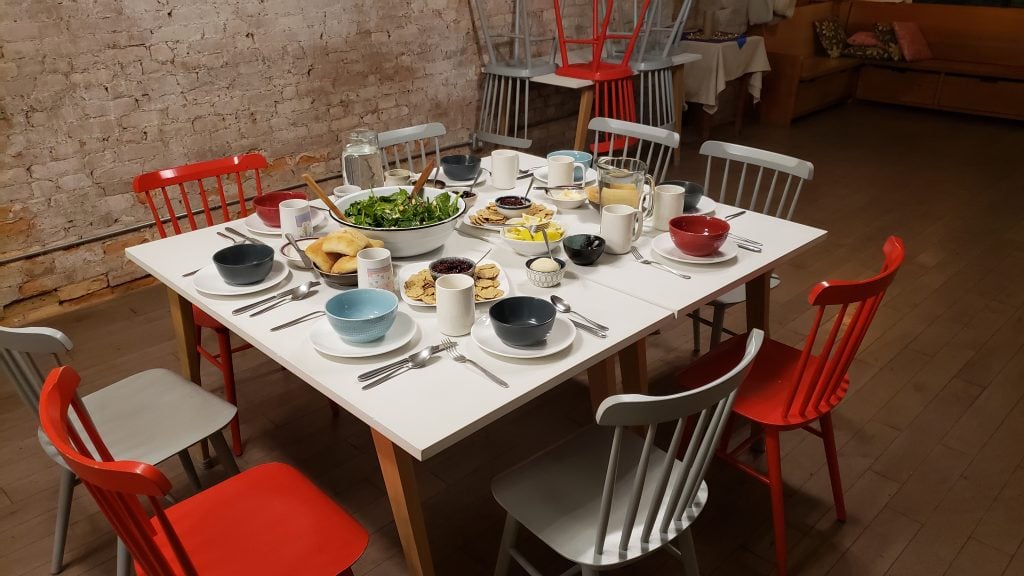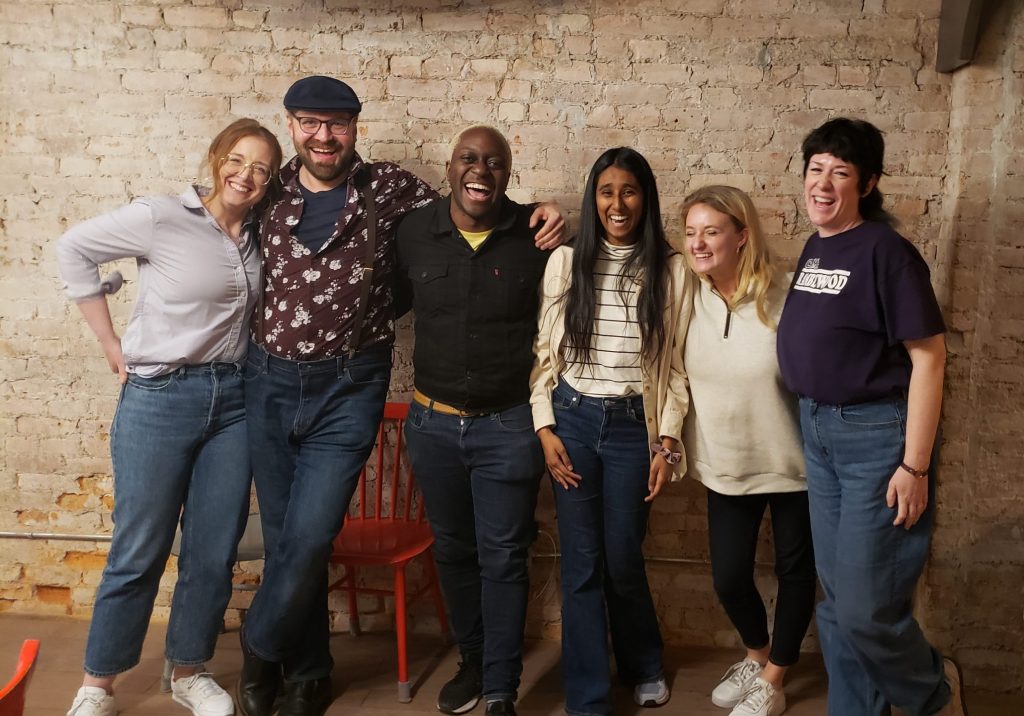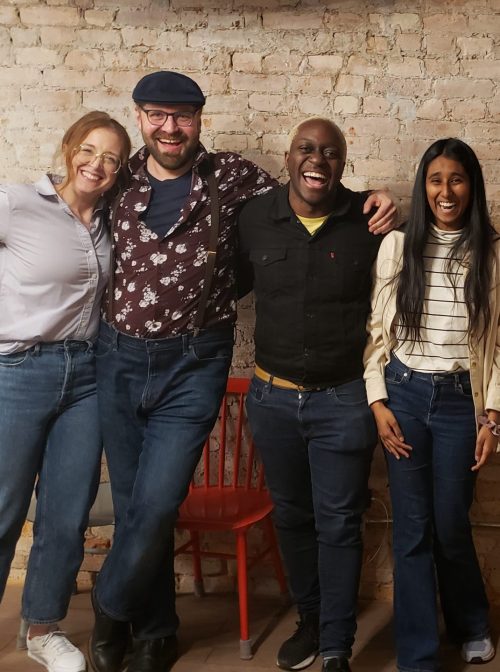I live in New York City, which has abundant houses of worship, seminaries, and religious nonprofits. However, among the progressive, college-educated crowds in which I find myself, discussing religion is quietly taboo. Not so much, “We don’t talk about that” as “Why talk about that?”
When mentioning that I attend religious services or have a passion for interfaith organizing, I rarely get the curious follow-ups others receive when sharing an interest in health, politics, or film. As a person whose spiritual identity is a mix of Reform Judaism, Buddhism, 12-Step, and Mainline Protestantism, I see robust discussions of faith and spirituality within these communities but not outside them.
I have seen the transformative power of interfaith dialogue. I co-created and hosted a virtual interfaith discussion group that met 50 times during the pandemic alongside clergy from Congregation Rodeph Shalom and Judson Memorial Church called “Together in Faith, Together in Heart.” There, I witnessed a soulful connection to ancient texts, a deep curiosity about different views of the sacred, and an appreciation for a shared human experience.
In addition, I was a digital community manager for “The Chapel,” an online community for Christians founded by pastor & author Rev. Nadia Bolz-Weber. My progressive Jewish background in a community with many deconstructing Christians brought impactful moments of discovery, revelation, and connection. In interfaith discussions, I keep seeing how sharing differences becomes a bridge to commonality.
Our culture’s inability to discuss faith and spirituality weakens our capacity to grow community. Our beliefs and questions are deeply rooted in our background and identity; failing to consult them robs us of a powerful way to create connection through difference. A town can only raise a barn if its people can perform carpentry together. How can we build a vibrant, diverse society when we cannot discuss the sacred in our lives? For an interconnected, interfaith community, our culture must find ways to discuss the sacred as easily as we do fitness, politics, or TV.
Ironically, the 50-year “culture war” about faith’s role in public life is to blame for the absence of public faith dialogue. The progressive response to growing religious conservatism in the 1980s was protecting secular civics while downplaying the need for a faith-rooted liberal social ethic. Conservatives became effective at talking about faith and values, while Liberals broadly spoke around them. Though our society has made great strides in discussing race, gender, mental health, and queer rights, conversations about faith have remained a no man’s land for many.

In response, I co-created “The Deep Dinner,” supported by an Interfaith America Emerging Leaders grant. It was a dinner conversation event that met five times for people of different faith orientations and beliefs to discuss faith and spirituality in a place “rooted in no tradition.” I developed and co-facilitated our dinners with an Unitarian Universalist ordination candidate, Bambi Galore, to help bring a sense of agenda-less spirituality. We removed the social, political, and theological pressures that make religious conversations challenging, allowing our guests to grow their ability to discuss faith comfortably.
We had our dinners at St. Lydia’s of Brooklyn, a progressive church in a welcoming storefront space with no iconography. Each dinner started with a short centering ritual: three settling breaths and lighting a candle with an invocation. A guiding prompt led to open conversation, guided by myself and Bambi, who shared our experiences as equals. We ended with a ritual of sharing “what we came with and what we were taking away.” After some guided breathing and the extinguishing of the candle, our guests departed.

We all share an instinct for meaning, sacredness, and connection.
We were joined by Jews, Christians, Buddhists, Hindus, and those “spiritual but not religious.” I found many themes repeatedly emerge: stories of traumatic religious communities, spiritual experiences found in unexpected places, and how spirituality helps us manage our feelings with kindness and patience. I saw people light up when talking about their faith experiences, seeing another’s, and then tying those revelations back to their understanding: sharing, seeking, and returning. The honest sharing of differences while seeing the foundational similarities beneath brought people closer to each other. We all share an instinct for meaning, sacredness, and connection. No matter our beliefs, we are all irrevocably human.
This nation will need interfaith dialogue beyond sharing everyday experiences and affirming mutual dignity to heal its rifts. We must respectfully engage each other about uncomfortable and messy truths; however, allowing people to share their experiences to find commonality is an invaluable start. A diverse, innovative, and interfaith religious awakening is growing in America, sparks that can ignite into a light of transformation. It was an honor to behold a few of them for a while.

Mark Gilman is a “Multi-Faith Jew” passionate about interfaith dialogue and organizing. He hosted a two-year virtual interfaith study and discussion group, “Together in Faith, Together in Heart,” alongside Congregation Rodeph Shalom and Judson Memorial Church clergy. He was a Digital Community Manager and frequent presenter for “The Chapel,” a digital community founded by bestselling author Rev. Nadia Bolz-Weber. He co-developed a Buddhist-Christian Lenten study series at Judson Memorial Church. Most recently, he co-developed and co-hosted the interfaith spirituality series, The Deep Dinner. You can follow him on Instagram at @untinydancer.




